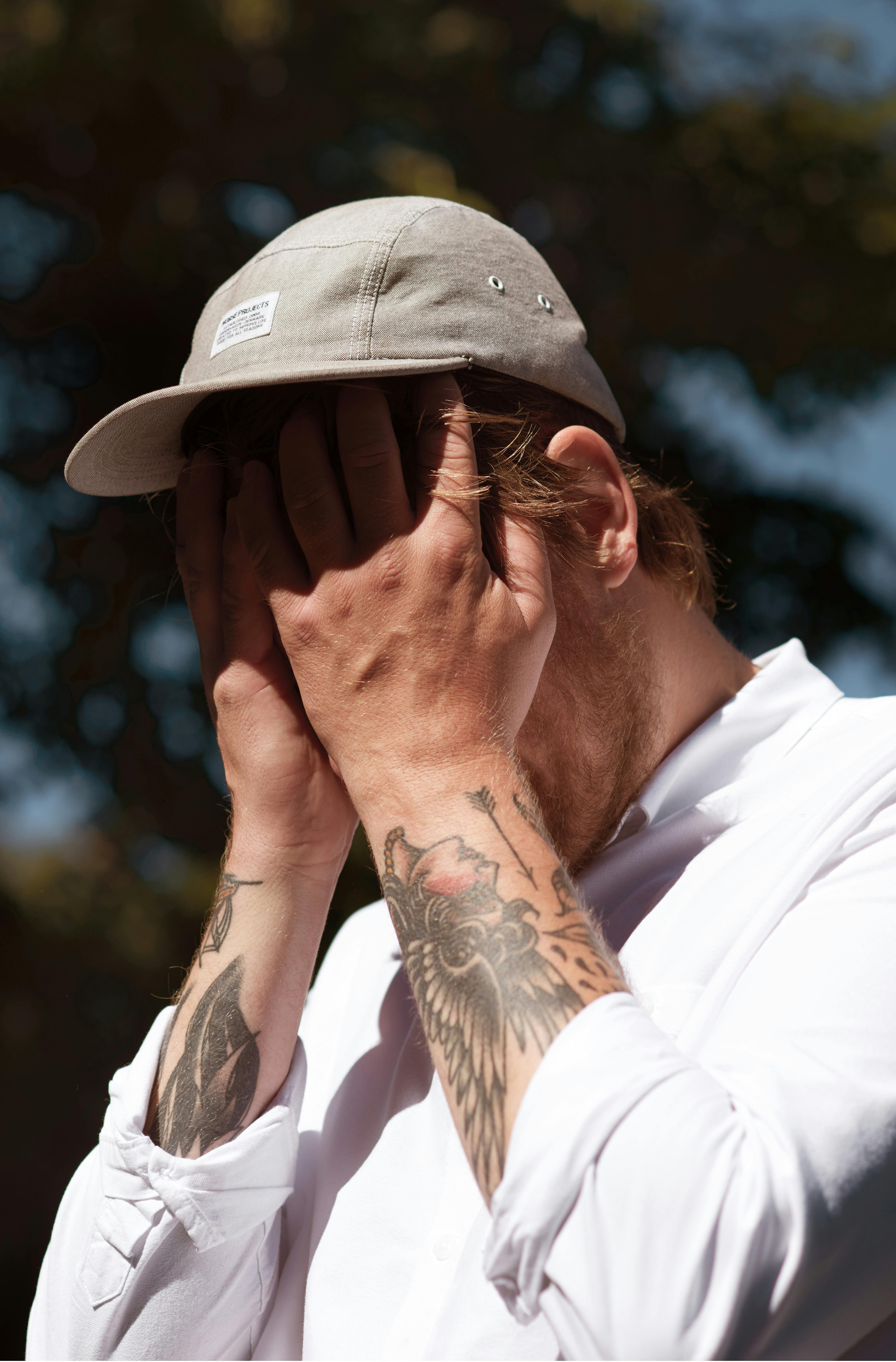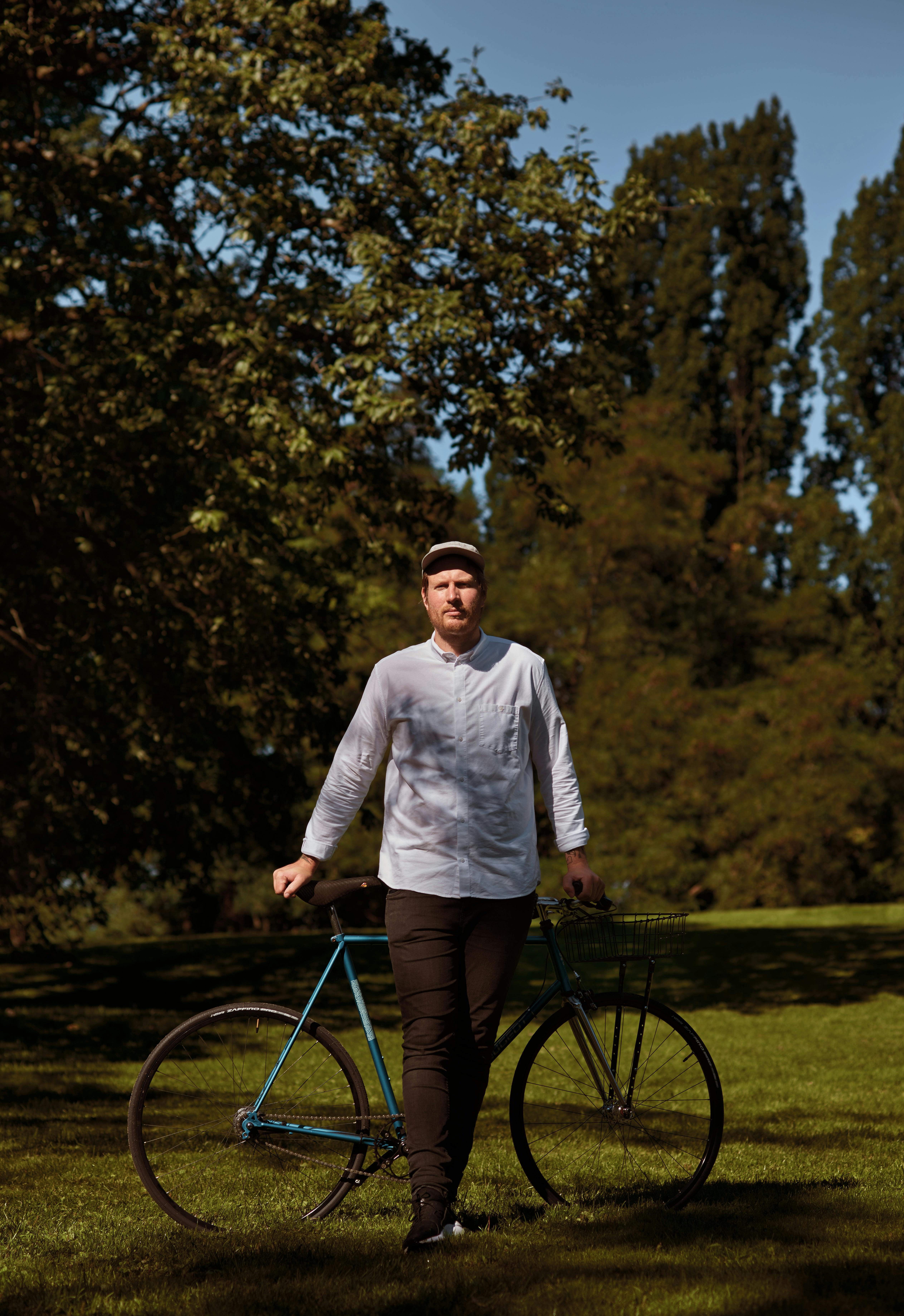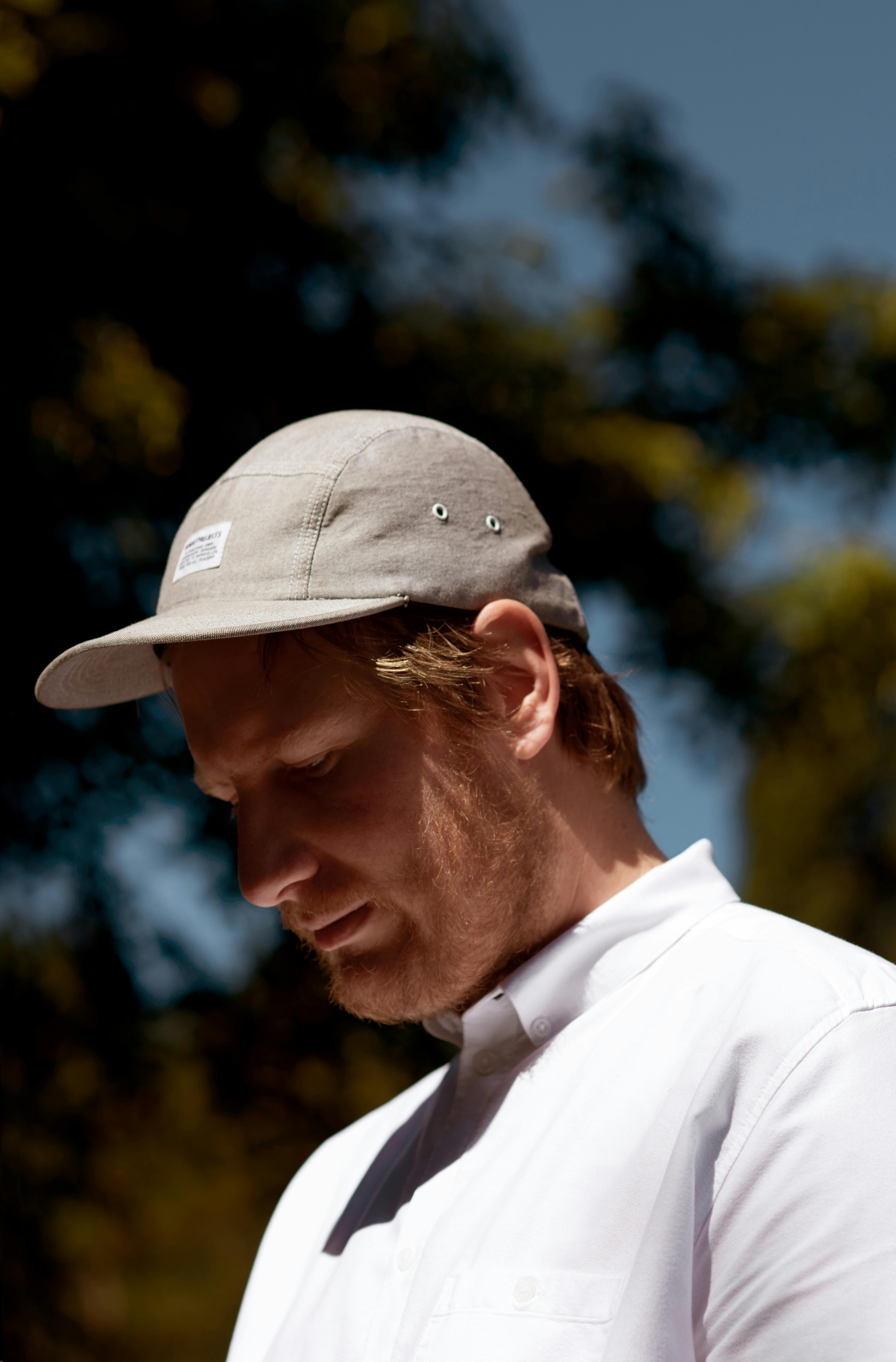The addictiveness of cycling
Esben Holmboe Bang, chef and owner of Maaemo, cycles in order to create distance, both physically and mentally. And to become more creative.

Text: Silje Strømmen
Photos: Lasse Fløde
Push. Paddle. Breath. Create distance. Paddle harder. Feel the beat of your heart. Clear your head. Paddle harder. The distance grows. Feel the stress located in your shoulders slowly disappear. Feel your muscles work for that final paddle. Breathe.
Welcome home.
“That ride to and from work every day is important to me. Riding to work helps me get started. Riding from work helps me create distance, and by so it becomes a very symbolic act”, Esben Holmboe Bang, chef and owner of “a small eatery in Oslo, Norway” says over a cup of coffee. He is tall, has crystal blue eyes and an intense glance. He talks fast but takes his time when answering questions.
That “small eatery” that we are now located in the offices of is Maaemo, Norway’s only and one of two restaurants with three Michelin stars in all of Scandinavia. “The level of stress is lower now than ever”, Holmboe Bang says surprisingly. Describing a regular day as “get up, eat breakfast, deliver the kids to kindergarten and school, get to work where no days is the same, leave around four, pick up the kids, make dinner and get the kids to bed, leave for work the second time and work until midnight”, he admits that it can be a lot more stressful than what he is experiencing at the moment. At those times the bike has been indispensable.
“A part of what attracts me to road cycling is the possibility to create large distances in a relatively short time. By doing so you create distance, both physically and mentally. I like that”.
Growing up in the area around Copenhagen, Denmark, the bike had a much simpler meaning. If you wanted to go somewhere, you biked. Nothing symbolic about it, it was simply the way things were done. He continued to use the bike for transportation until he moved to Oslo 10 years ago. The bike was not a part of the move, and when Oslo didn’t strike him as a particularly bicycle friendly city, buying one was postponed. The years went by, and the absence became clearer.
“Biking is something that can be quite addictive. With road cycling I feel like the pain-aspect is just as important. You feel that your body is being pushed and for me that help open some doors in my mind and contributes to me thinking more creatively. That is one of the main reasons why biking is important to me. And of course it is so much fun. When I don’t get to bike I can get quite grumpy”, Holmboe Bang acknowledges to himself.
His level of grumpyness over the last six months is not mentioned, but after an accident back in January he hasn’t been able to get out on the road so far this year.

“I got my custom made Independent Fabrication road bike at the end of last years season. Then it became winter and then I had my accident. It is the most expensive bike I have ever owned, hanging on the wall… My heart hurts every time I walk past it, but I’m expecting to be back on the wheels soon”. In the meantime he gets his fix by riding his custom made Peugeot city bike that he got made at Oslovelo at the beginning of the season. It is beautiful and does the job perfectly, but it is clearly the Independent-bike that is the apple of his eye:
“It is something special about a custom made steel bike: the handcraft and the hours you know have been put into it, and the fact that it is built after your measurements. There is a bit of awe every time you get on it. It rides beautifully and it is definitely a bike that you have for the rest of your life. With a steel frame I feel like you get a more dynamic riding experience compared to a carbon frame, which I often feel like you get a very one dimensional riding experience with. The steel frame moves more together with your body and you feel like you are riding a proper bike”.
In our initial talk Holmboe Bang delivered the conclusion that “when you like something, the wish for aesthetics will quickly follow”. Upon asking him to elaborate he goes back to his bike in Denmark. It was an altogether nice bike, but if was 100 % an object of use that he didn’t offer too much thought. It was only after he started riding a lot the interest for the bike as a beautiful object was awakened.
“And when you experience that, you naturally start buying things that you find aesthetically appealing. In my life in general I’m keen on surrounding myself with things that give me something and I try to reach the full potential of those things. Even though they are simple object that I use every day, I want them to be appealing to look at. I think that bikes are one of the most beautiful objects that exist. That goes for racers, but I also believe that the most beautiful thing is a well-used bike that is being good taken care of. One can not forget that bikes has become this very trendy thing and I think it is amusing to see those who buy fixies as an accessory to get a complete look. Those are easy to sport though, it quickly becomes too put together”.
However you can’t overlook the fact that for most cyclists, aesthetics and bikes fit together like Saturday nights and ginger beer. Whether you are part of a road cycling team wearing matching socks or a mere enthusiast who have carefully chosen a red Bison Tokyobike as your chosen mode of transportation because, well, you like how it look. Another “fact” that can’t be overlooked is the place the culture for good food and good wine has to many cyclists. One example from the pages of this magazine is the group of cyclists that after their ride gathered at Ciclosfuso in Milan and had wine and ham on Saturdays.
“It’s hard to generalise, but I think that for many cyclists, and especially those I know (Holmboe Bang is part of the team FTT, known for their appreciation of good food and beverage), it has a lot to do with hedonism. You do it for yourself. Even though you are riding with your friends and cycling is about community, the setting is still self-suffering. I think the same thing about good food and wine, the experience is often better when you do it together with other, but it is essentially something that you do for yourself. You can definitely draw some parallels there. My observation is that those who cycle are more concerned with things such as good food and coffee. They are more interested in enjoying life, and to me that is what biking is all about. It is about getting out there and notice that you exists”, he reflects, adding while laughing that he thinks it is his culinary skills that has been voted onto the FTT-team rather than his cycling abilities:
“But it is great fun. There are some extremely skilled cyclists on that team and they are really fast guys. It is fun to cycle with people who are on a higher level than you. It pushes you”.
At the beginning of Maaemo Holmboe Bang could easily get on his bike and paddle out in the woods to harvest the ingredients for the menu of the evening. These days the quantities have outgrown the bike, and he doesn’t spend the same amount of time in the field as before, although “I would love to say that I still do go harvesting by bike, because it sounds so romantic”, he discloses.
In the Maaemo kitchen Holmboe Bang aims to “highlight the relationship between the raw nature, product and our cultural history”.

“Maaemo is about more than local food. It is about being a place representative for where we are located. We are totally dependent on using what’s around us in order to create an impression that visitors find exotic and locals recognize. We are completely dependent on being able to distillate our surroundings.
When it comes to the food we eat every day I believe that local food is important because it is an impression of the times we live in and an impression of our location, our heritage and our history. If we don’t preserve that we loose a big part of the Scandinavian mentality. That goes for all countries, not just local Norwegian food. Looking at local food traditions is like looking into the heart of a society.
For Norway that culture also includes Friday night tacos and Grandiosa (frozen pizza). It is important to accept that not everyone goes home and eats kjøttkaker (meatballs) or smalahove (sheep’s head)”. “Both cycling and good food is about prioritising”, Holmboe Bang reveals.
“10 years ago you didn’t see people biking in Oslo. Now you do. The mentality is changing and people are becoming better at taking advantage of their city. They eat out in the weekdays and spend their weekends exploring the city by bike. This generation is more concerned with prioritising things they like rather than things you “should” use money. Yes the cycling community is very concerned with status, but at the same time they use their money on stuff that matters to them personally”, he says adding:
“For me personally it is nicer to prepare food for someone who thinks it is fantastic food rather than those who are more concerned with taking photos of it. Enjoy it because it means something to you. Don´t just enjoy the idea of it”.